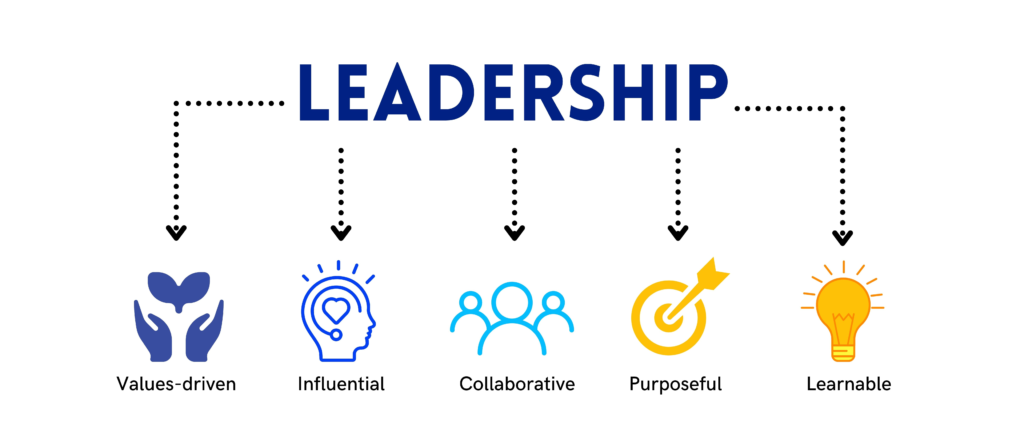Starting a business is an exciting and rewarding venture, but it comes with many challenges and risks. According to Demand Sage, the United States is the home to the most startups, with approximately 70,000 startups being created each year in the USA alone.
Globally, the number of startups being created per year is around 450,000. However, not all startups survive and thrive in the competitive and dynamic market. In fact, 9 out of 10 startups fail within the first five years of operation1.
So, what are startups’ main challenges, and how can they overcome them and succeed? This article will explore some of the most common startup challenges and provide tips and strategies to help you overcome them. These challenges and solutions are based on the web search results from my internal tool.
Read Also: What is an Entrepreneur Mindset, and How to Develop it?
What are the top challenges faced by startup founders?

Some of the top challenges faced by startup founders are
Funding
One of the biggest challenges for startups is securing enough funding to launch and grow their business. Startups need capital to cover various expenses, such as product development, marketing, hiring, legal, and operational costs. However, finding and attracting investors, such as angel investors, venture capitalists, or crowdfunding platforms, can be difficult and time-consuming. Investors are often selective and demanding and require a clear and compelling pitch, a realistic valuation, and a proven track record of the startup.
Market fit
Another major challenge for startups is to find and validate a market fit for their product or service. Market fit means that there is a clear and significant demand for the solution that the startup offers and that there is a solution that solves a real and urgent problem for the target customers. However, finding and validating a market fit can be challenging and costly, requiring extensive research, testing, and feedback. Many startups fail because they build something nobody wants or does not solve a problem better than the existing alternatives.
Competition
A third challenge for startups is to deal with the intense and growing competition in the market. Startups have to compete with other startups and established and well-known companies with more resources, experience, and reputation. Startups must differentiate themselves from their competitors and offer a unique value proposition, a superior quality, or a lower price. Startups must also keep up with the changing customer needs and preferences and the emerging trends and technologies and constantly innovate and improve their product or services.
Reda Also: Study Hacks for Entrepreneurs2024
Talent
A fourth challenge for startups is to find and retain the right talent for their team. Startups need talented, skilled people who can execute their vision and goals and share their passion and values. However, finding and hiring such people can be difficult and expensive, as startups have to compete with other companies that may offer higher salaries, better benefits, or more stability. Retaining and motivating such people can also be challenging, as startups have to deal with high workloads, tight deadlines, and uncertain outcomes.
Scaling
A fifth challenge for startups is to scale their business effectively and efficiently. Scaling means the startup can grow its customer base, revenue, and impact without compromising its quality, performance, or culture. However, scaling can be complex and risky, requiring careful planning, execution, and evaluation. Startups must balance the trade-offs between speed and quality, growth and profitability, and innovation and standardization. Startups must also manage the growing complexity and diversity of their operations, processes, and systems.
What skills are essential for startup founders?

Vision
Startup founders need to have a clear and compelling vision of what they want to achieve and why they want to achieve it. They need a big, bold idea that can inspire and attract others, such as investors, customers, and employees. They also need a clear and realistic strategy to guide and direct their actions and decisions and help them overcome the challenges and risks.
Leadership

Startup founders need to have strong leadership skills that can enable them to influence and inspire others and to build and manage a high-performing team. They need to have a clear and consistent communication style that can convey their vision, goals, and expectations and that can solicit and provide feedback. They also need to have a collaborative and empowering approach that can foster trust, respect, and accountability and that can delegate and empower others.
Creativity

Startup founders need to have a high level of creativity, which can enable them to generate original and useful ideas and solutions and discover new and better ways of doing things. They need a curious and open-minded attitude that can help them explore new possibilities, challenge assumptions, and learn from different sources. They also need to have a flexible and adaptable mindset to help them cope with uncertainty and change and pivot and iterate their ideas and solutions.
Problem-solving
Startup founders need to have excellent problem-solving skills to identify and analyze the problems and opportunities they face and devise and implement effective and efficient solutions. They need to have a logical and analytical thinking style that can help them break down complex and ambiguous problems into simpler and clearer components and that can help them evaluate and compare different alternatives. They also need to have a critical and evaluative thinking style that can help them test and validate their assumptions, hypotheses, and solutions, and that can help them measure and improve their outcomes and impacts.
Resilience
Startup founders need to have a high level of resilience that can enable them to overcome their challenges and failures and keep pursuing their vision and goals. They need an optimistic outlook that can help them focus on the opportunities and solutions rather than the risks and problems. They also need to have a persistent and determined attitude that can help them stay focused, disciplined, and consistent, and that can help them avoid giving up or quitting.
How can startup founders build a strong team?
Define your culture
Startup founders should define and communicate the culture they want to create and maintain in their team. Culture refers to the shared values, beliefs, and behaviors that guide and shape the team’s interactions and performance. Startup founders should articulate their vision, mission, and goals and how they align with their team’s values, passions, and strengths. They should also establish their norms, expectations, and standards and how they support their team’s collaboration, communication, and accountability.
Hire the right people
Startup founders should hire the right people for their team who can fit in and contribute to their culture, vision, and goals. They should look for people with the relevant skills, knowledge, experience, potential, attitude, and fit. They should also look for people with diverse and complementary backgrounds, perspectives, and styles who can bring value and innovation to the team. They should also use various methods and tools to assess and select the best candidates, such as interviews, tests, or referrals.
Train and develop your team

Startup founders should train and develop their teams to help them grow and improve their skills, knowledge, and performance. They should provide their team with the necessary resources, tools, and support to help them learn and execute their tasks and responsibilities. They should also offer their team the opportunities, feedback, and recognition to help them advance and excel in their roles and careers. They should also encourage their team to purue their learning and development goals and share their learning and insights with others.
Empower and motivate your team
Startup founders should empower and motivate their teams to help them unleash their potential and achieve their goals. They should delegate and entrust their team with the authority, autonomy, and accountability to make decisions, take actions, and own and solve their problems and challenges. They should also reward and appreciate their team for their efforts and achievements and celebrate their progress and success. They should also inspire and challenge their team to pursue higher and harder goals and to innovate and improve their products or services.
How do startup founders balance work and personal life?
Some of the ways that startup founders can balance work and personal life are:
Set boundaries: Startup founders should set clear and healthy boundaries between their work and personal life and respect and enforce them. They should define their work hours and days and stick to them. They should also communicate their availability and expectations to their team, customers, and partners and avoid interruptions and distractions during their time. They should also use tools, apps, or software, such as Do Not Disturb, Calendly, or Slack, to manage their notifications, calls, and messages and to automate or streamline some of their workflows or processes.

Prioritize and plan: Startup founders should prioritize and plan their work and personal activities and allocate their time and energy accordingly. They should identify and focus on the most important and urgent tasks and responsibilities and delegate or outsource the rest. They should also schedule and organize their work and personal activities and use tools, apps, or software like Todoist, Trello, or Google Calendar to track and manage their tasks, projects, and events. They should also regularly review and adjust their priorities and plans, and be flexible and adaptable to changing circumstances.
Take breaks and recharge: Startup founders should take regular breaks and recharge their physical, mental, and emotional energy
to recharge their physical, mental, and emotional energy. They should take short breaks throughout the day, such as stretching, walking, or meditating, and longer breaks during the week, such as relaxing, exercising, or pursuing their hobbies. They should also take vacations or sabbaticals periodically to disconnect from work and reconnect with themselves and their loved ones. They should also use tools, apps, or software, such as Headspace, Calm, or Insight Timer, to practice mindfulness, relaxation, or wellness techniques.
Seek support and balance: Startup founders should seek support and balance from their family, friends, and peers and share their work and personal challenges and achievements with them. They should also seek professional help or advice, such as mentors, coaches, or counselors when needed. They should also join or create communities or networks, such as online forums, groups, or events, where they can meet and interact with other entrepreneurs who can understand and empathize with their situation and offer guidance, feedback, or collaboration opportunities. They should also strive to balance their work and personal roles and responsibilities and avoid neglecting or compromising them.
Conclusion
Starting a business is an exciting and rewarding venture, but it comes with many challenges and risks. This article explored some of the most common startup challenges, such as funding, market fit, competition, talent, and scaling. We have provided some tips and strategies to help you overcome them. We have also discussed some essential skills for startup founders, such as vision, leadership, creativity, problem-solving, and resilience, and how to develop and improve them. We have also examined how startup founders can build a strong team and how to balance work and personal life.
We hope this article has provided useful insights and advice on starting and running a successful business and coping with the challenges and risks you may face. Remember that starting a business is not a sprint but a marathon and that you must learn, adapt, and grow. However, you can overcome any obstacle and achieve your goals with the right mindset, skills, and strategies. 😊





